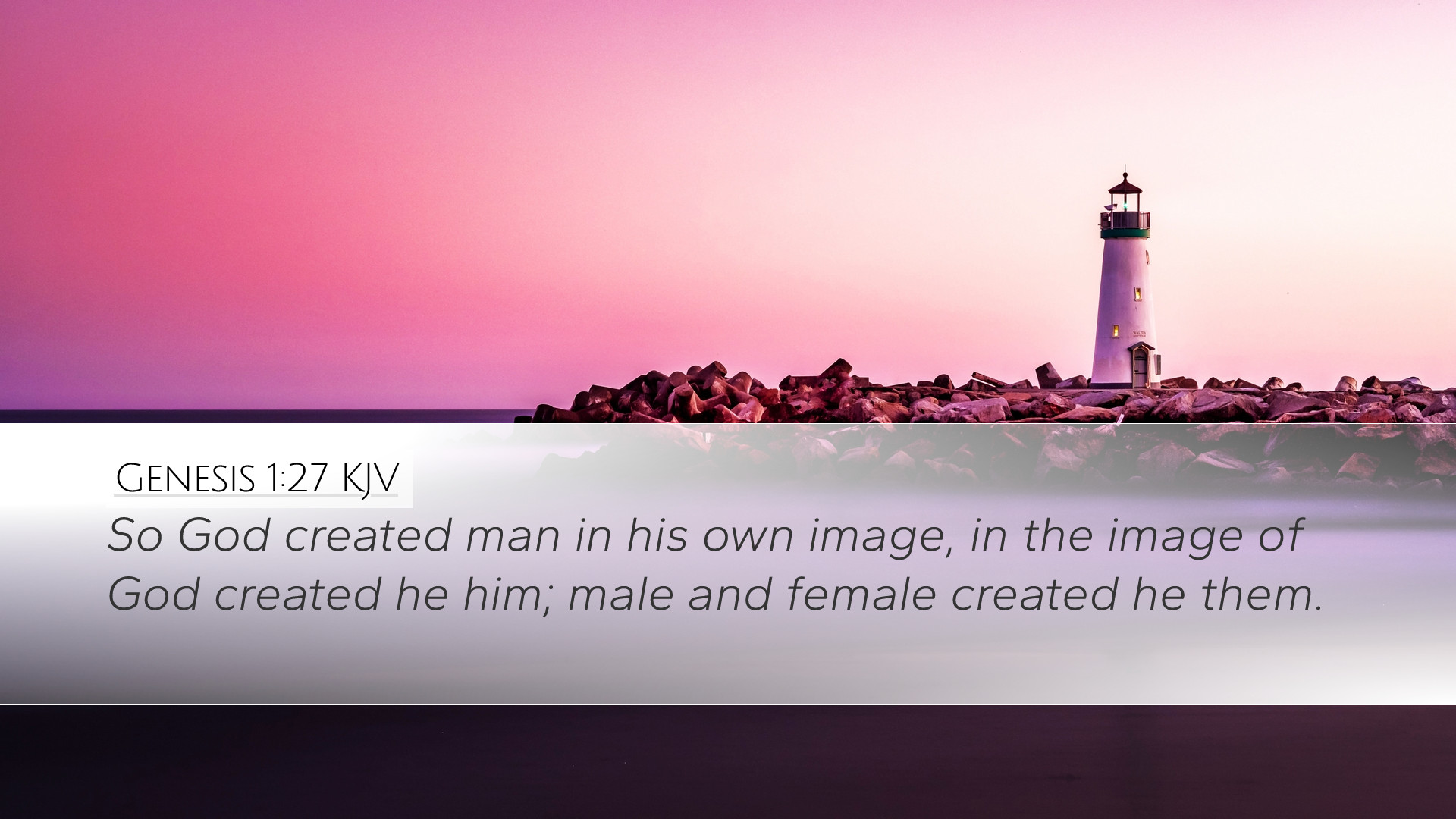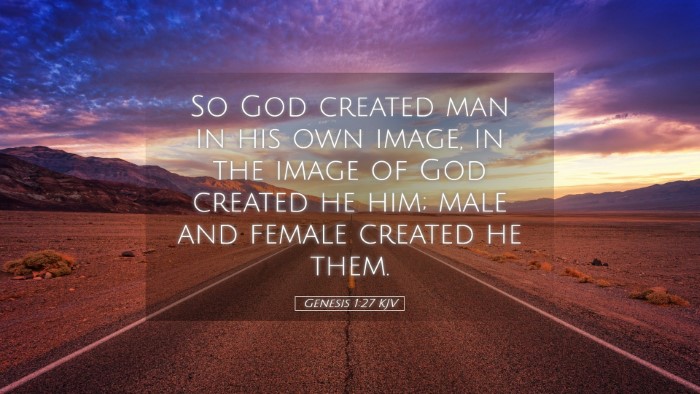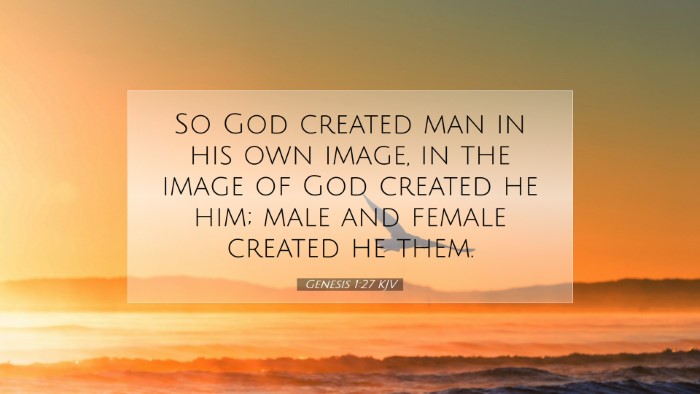Commentary on Genesis 1:27
Genesis 1:27 states: "So God created mankind in his own image, in the image of God he created them; male and female he created them." This passage forms a foundational element of theological understanding regarding the nature of humanity, the divine, and the relational aspect of humanity itself.
Divine Image and Human Dignity
The phrase "in his own image" is particularly significant. According to Matthew Henry, this aspect of 'image' implies a resemblance, not in physicality but in qualities such as wisdom, righteousness, and holiness. Human beings are created to reflect the nature of God, giving each individual inherent dignity.
Albert Barnes emphasizes that this 'image' denotes the spiritual faculties of man, such as intellect and will. It establishes that humanity's worth is not derived from social status or achievements but from being made in the likeness of God Himself.
Male and Female He Created Them
The second part of the verse states that God created them "male and female." Adam Clarke notes that this duality is essential for the completion of God's image on Earth. Male and female represent unique aspects of humanity that reflect different attributes of the divine. Clarke further points out the importance of gender in the divine plan, suggesting that both male and female are necessary for the fullness of human experience.
- Gender Equality: The equality of male and female in this creation narrative serves as a foundation for the understanding of gender roles in the Church and society.
- Complementarity: While both genders are equal, they also exhibit distinct traits that complement one another, akin to the relationship within the Trinity.
Theological Implications
Genesis 1:27 has profound implications for various areas of theology:
- Theology of Creation: The understanding that humanity is the climax of God's creative work signifies the special relationship between Creator and creation.
- Human Nature: This verse influences the Christian anthropological perspective—that humans possess inherent value due to their creation in God's image.
- Social Justice: The implication that all humans bear God's image demands respect and compassion irrespective of social, economic, or racial differences.
The Role of Humanity
As bearers of God's image, humanity is tasked with stewardship over creation. Matthew Henry articulates this in terms of dominion—humans are appointed to rule over all other creatures, reflecting God's authority. This dominion should be exercised responsibly, reminding us of our accountability to God for the care of His creation.
Reflection on Relationships
From this verse emerges the principle of relationality. The creation of both male and female suggests that relationships—interpersonal and communal—are essential to fulfilling our God-given purpose. Biblical community, exemplified through the marriage covenant, rats back to the unity and diversity present in the Godhead.
Application in Ministry and Life
The implications of Genesis 1:27 extend directly into pastoral care and everyday life:
- Emphasizing Dignity: In counseling, emphasizing the dignity of each individual, created in God's image, helps believers understand their worth and purpose.
- Equality in the Church: This verse provides a theological basis for promoting equality among genders in the church, affirming that both men and women are called to minister and serve.
- Creation Care: Pastors can motivate their congregations to engage in responsible stewardship of the environment, rooted in the dominion mandate.
Conclusion
Genesis 1:27 serves as a cornerstone for understanding human identity and purpose within the biblical narrative. It emphasizes not only the value of each person but also the essential nature of community and relationships. By understanding our creation in the image of God, believers are called to embody reflectiveness, responsibility, and a profound respect for the dignity of all humanity, ultimately glorifying God in the process.


